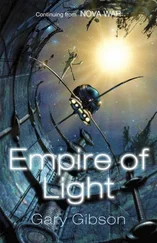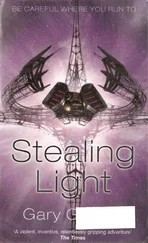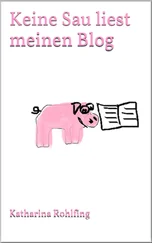Gordon Lish — the enormously influential editor, writer, and teacher whom I mentioned earlier — instructed his students in a poetics of the sentence that emphasized what he called consecution: a recursive procedure by which one word pursues itself into its successor by discharging something from deep within itself into what follows. The discharge can take many forms and often produces startling outcomes, such as when Christine Schutt, in “The Summer after Barbara Claffey,” is seeking the inevitable adjective to insert into the final slot in the sentence “Here is the house at night, lit up tall and .” What she winds up doing is literally dragging forward the previous adjective, tall , and using it as the base on which further letters can be erected (while remaining mindful, as well, of the plaintive ow sound in the one concrete noun of the independent clause: house ). The result is the astounding, perfect tallowy —the sort of adjective she never could have arrived at if she had turned a synonymicon upside down in search of words that capture the quality of light.
Gordon Lish’s poetics forever changed the way I look at sentences, and so many of the sentences that thrill me are sentences in which consecution and recursion have determined the sound and the shape of the community of words. Take the aphoristic sentence that closes Diane Williams’s story “Scratching the Head,” in her second collection, Some Sexual Success Stories Plus Other Stories in Which God Might Choose to Appear : “An accident isn’t necessarily ever over.” There is so much to remark upon in this six-word, fifteen-syllable declaration. A sibilance hisses throughout accident, isn’t , and necessarily ; and in those three words there are further acoustical continuities — the ih sound moving forward from accident and into isn’t , the en sound moving forward from accident and into isn’t and into necessarily . In the five-syllable adverb necessarily , the vowel-and-consonant pair ar of the third syllable receives the primary stress, and the ne of the first syllable receives the secondary stress; and the e and the r of those two syllables get fillipped forward into ever , and then the dying fall of that adverb is echoed dyingly by over. Ever has morphed into over , of course, with nothing more than the substitution of an o for an e . These tumbly final words tumble out into a long vowel, the only long vowel of the sentence: the woe-laden, bemoaning long o . The final syllable of the sentence is unstressed, and this unaccentedness deprives the sentence of a hard, clean-cut termination, much as the import of the sentence insists that an accident lacks definitive finality.
A sentence that I have spent an almost pathological amount of time gaping at since the turn of the century, a sentence that always leaves me agog, is the opening sentence in Sam Lipsyte’s story “I’m Slavering,” in Venus Drive : “Everybody wanted everything to be gleaming again, or maybe they just wanted their evening back.” The paraphrasal content of the statement informs us that high hopes for a return to a previous wealth of life or feeling are inevitably going to have to be scaled back and revised immediately and unconsolingly downward. If you tweak the verb tense from the past to the present, the sentence is even more self-containedly epigrammatic in its encompassing of our shared predicament of disappointments. It’s a richly summational sentence, not the sort of sentence you might expect to find at the very outset of a story — but there are writers whose mission is sometimes to deliver us from conclusion to conclusion instead of necessarily bogging us down in the facts, the data, the sorry particulars leading to each conclusion.
Lipsyte’s sentence is composed of words that, in ordinary hands, are among the most humdrum and pedestrian in our language: in the first half of the sentence alone, the words filling the subject slots in the independent clause and in the infinitive clause are the bland, heavily used indefinite pronouns everybody and everything . And the entire sentence is in fact completely lacking in specificity and so-called literary or elevated language: there is no load of detail, no verbal knickknackery whatsoever — there are no big-ticket words. The only standout word, the participle gleaming , most likely was called up into the sentence out of bits and pieces of the words preceding it — the ruling vowel of the entire utterance (the long e ) and the — ing of everything . Yet this opening flourish of the story not only has both sweep and circumference in its stated meaning, but it has a swing and a lilt to it as well. The first half of the sentence is buoyant, upfloating. The entire sentence has the chiming, soaring, C-chord long e ’s in everybody and be and gleaming and maybe and evening ; it has the alliterative ballast of the b ’s in everybody and be and maybe and back , and of the g ’s in gleaming and again ; and the only really closed word in the mix is the final word, the adverb back , which is shut off with harsh consonants at either end, especially the cruelly abrupt, terminal k , which finishes off the sentence and pushes it rudely down to earth. The last vowel in the sentence is the minor-key short a in back —the only appearance in the sentence of the disappointed, dejected ahhh of crap and alas .
Some of the most obvious ways to ensure that the words in a sentence together create a community of sound and shape are too rarely discussed explicitly outside of, say, high-school creative-writing classes. Yet many great writers constantly avail themselves of these little tactics to give their phrasing both dash and finish. The result is often a sentence that looks and sounds fulfilled, permanent . These phrasal maneuvers are concertedly evident in the examples I cited earlier, but they are worth considering individually, because even though we are all well acquainted with every one of them, we too easily forget just how much they can do for us.
For starters, make sure that the stressed syllables in a sentence outnumber the unstressed syllables. The fewer unstressed syllables there are, the more sonic impact the sentence will have, as in Don DeLillo’s sentence “He did not direct a remark that was hard and sharp.” You can take this stratagem to breath-stopping extremes, as Christine Schutt does in her sentence “None of what kept time once works.” Schutt’s sentence should remind us as well that we need not shy away from composing an occasional sentence entirely of monosyllabic words, as Barry Hannah also does in “I roam in the past for my best mind” and “He’s been long on my list of shits in the world,” and as Ben Marcus does in “They were hot there, and cold there, and some had been born there, and most had died.”
Those sentences illustrate another point: unless you have good reason not to do so, end your sentence with the wham and bang of a stressed syllable, as in Dawn Raffel’s sentence “She lived to marry late” and in John Ashbery’s “There was I: a stinking adult.” Such sentences stop on a dime instead of wavering forward for a wishy-washy further syllable or two.
At the opposite extreme, give force to your sentences by stationing the subject at the very beginning instead of delaying the subject until an introductory phrase or a dependent clause has first had its dribbling say. This precept of course violates almost every English-composition teacher’s insistence that students vary the openings of their sentences, but you will find the best writers disobeying it as well. Readers have often attempted to account for the extraordinary cumulative power in the work of Joseph Mitchell, who wrote literary journalism for the New Yorker in a deceptively plain and simple style that often achieved incantatory cadences. You can make your way through pages and pages of Mitchell’s gravely beautiful prose and almost never find him starting a sentence without laying down his subject at the outset. Many fiction writers also skip the preambles, as Dawn Raffel does in her sentence “She was born in December in Baraboo or thereabouts — small, still, blue, a girl, and, by some trick of oxygen, alive.”
Читать дальше












